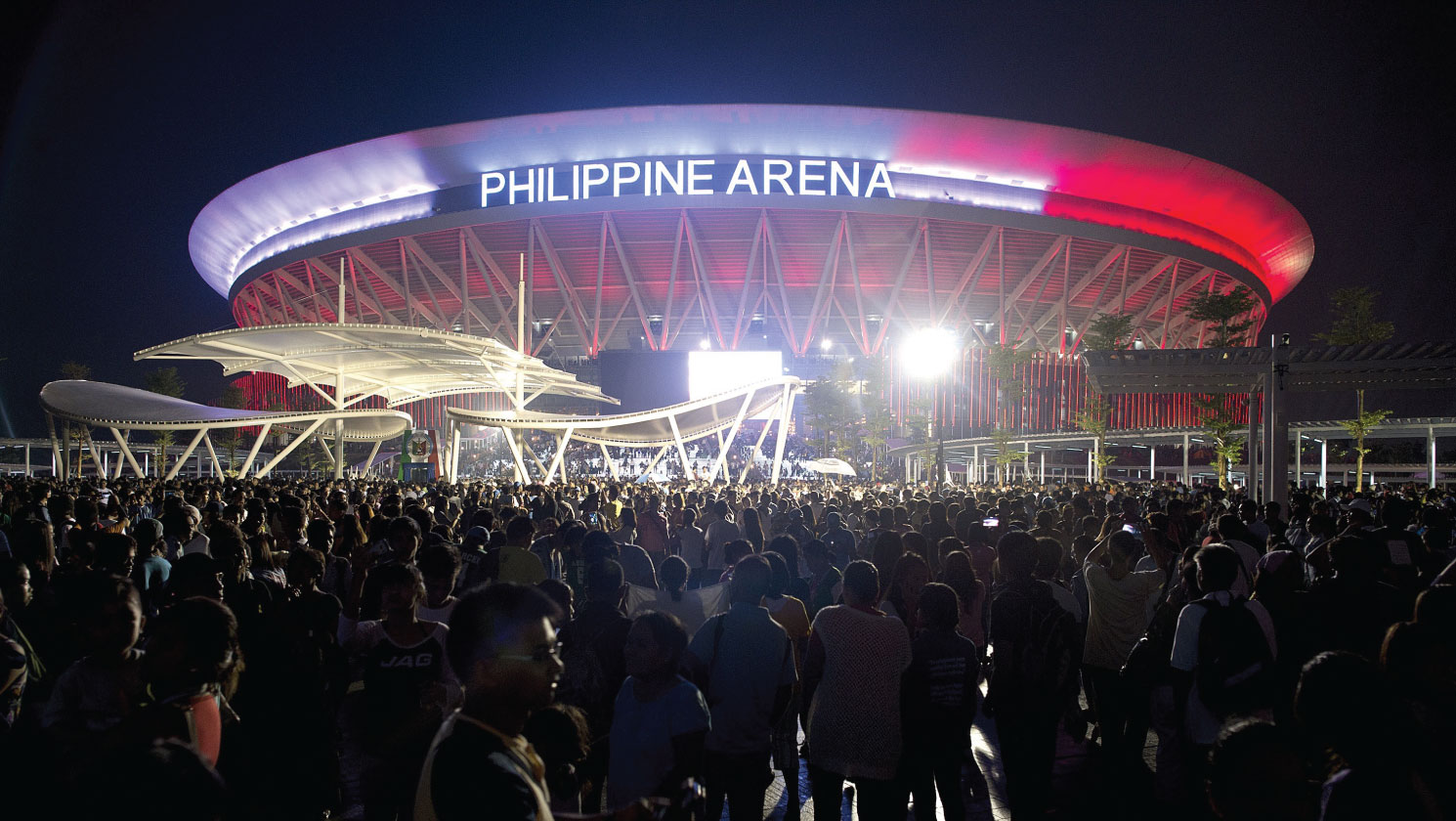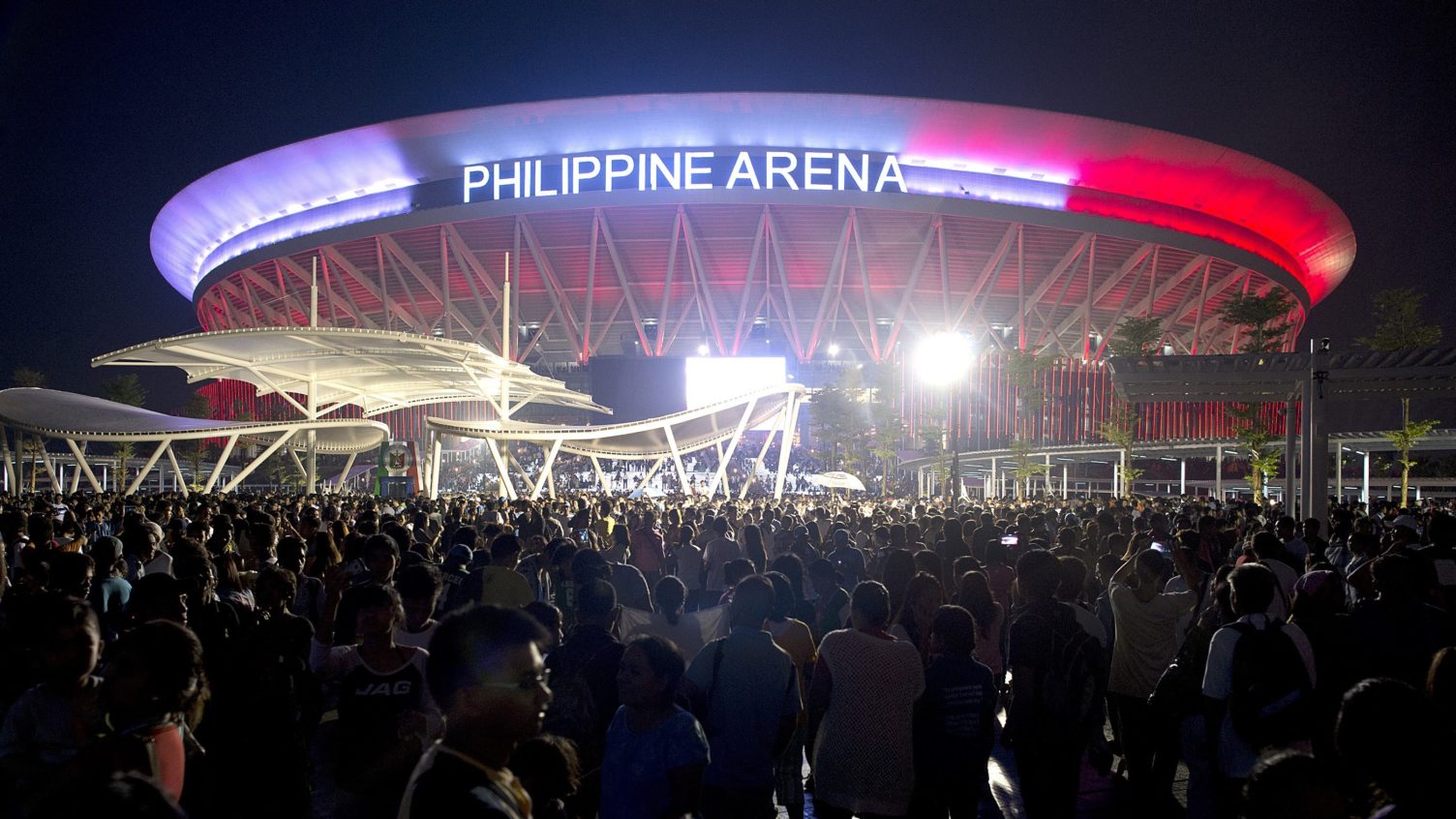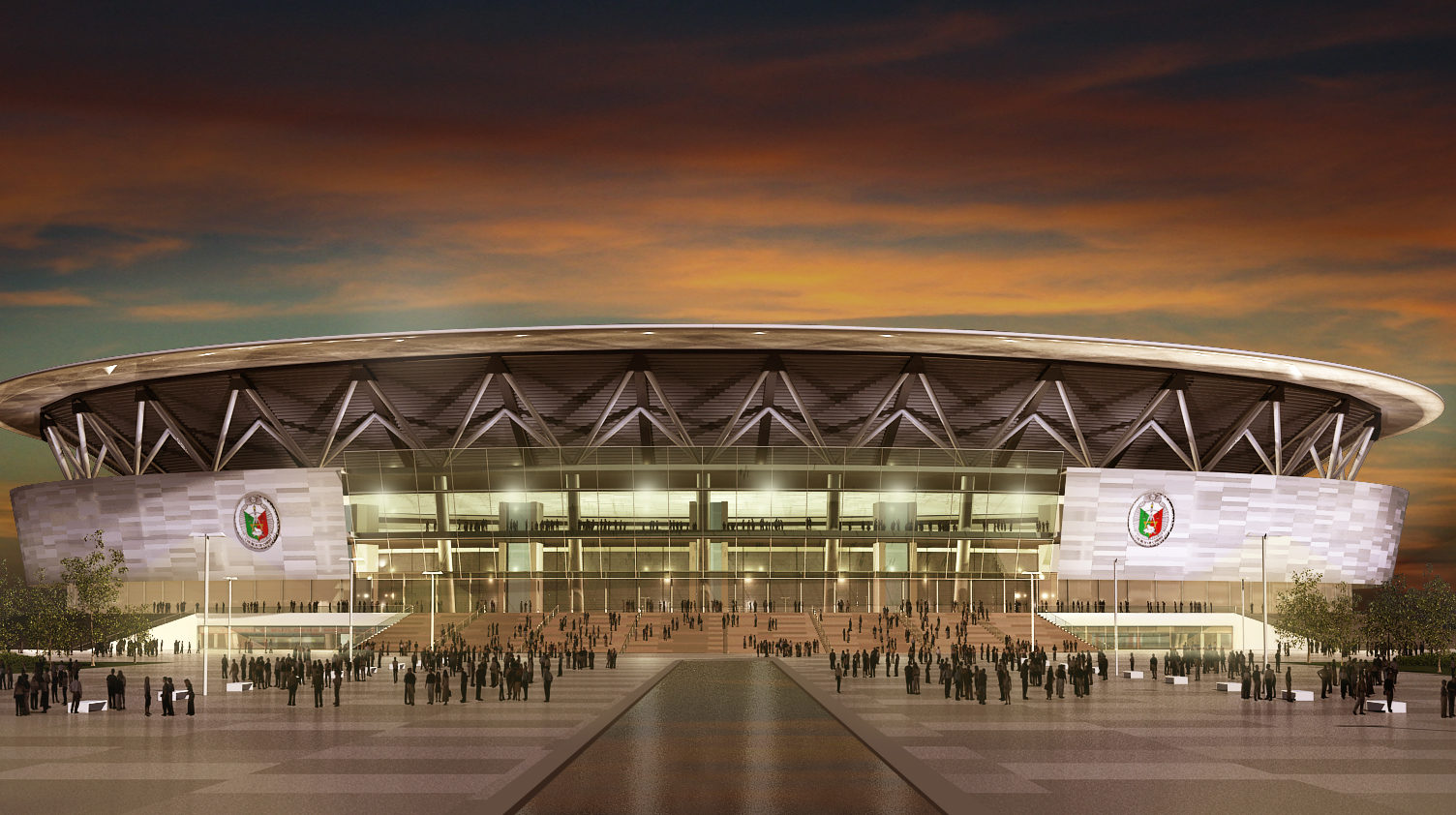Philippine Arena
Ciudad de Victoria, Bulacan, Philippines
-
Typologies
Arenas
-
Building Activities
Basketball, Boxing, Concerts
-
Services
Architecture
-
Completion
2014
Jump to
Philippine Arena is one of the world’s largest indoor arenas, capable of seating 50,000 fans in a fully enclosed building. Since opening, the arena has hosted a range of sporting, music and church events.
CHALLENGE. The Philippines’ capital of Manila is the world’s most densely populated city, and anchors a metropolis of more than 12 million people. The Iglesia ni Cristo (INC) commissioned Populous to design an arena that could host 50,000 people for major church gatherings and events of all types. This would be INC’s gift to the city — a place for joy and a landmark reflecting Manila’s status as a rising global force.
It is difficult to give 50,000 people a good view of a single focal point and create an intimate atmosphere. A facility of this size also needs to avoid feeling empty during smaller events. The design had to enable large crowds to enter and exit the arena quickly and safely, and account for Manila’s humid, tropical climate and location in an earthquake zone.
INNOVATION. Populous envisioned the Philippine Arena as a true gathering place where the community could come together. Situated on a green field site north of Manila, at Ciudad de Victoria, the arena has been designed to host the maximum possible number of people — 50,000 people inside the building and another 50,000 as a “live site” outside for major events when required.
To build at such a vast scale, the boundaries of traditional arena design were pushed. The arena’s form uses geometry to create an elegant appearance and powerful presence. To give every seat a clear sightline, even as the arena’s configuration changes to accommodate diverse events, the Philippine Arena was designed as one-sided bowl in a tight, compact saddle shape that is high in the center and drops at the flanks. Strategically placed video boards also help with atmosphere and provide additional viewing.
To retain intimacy during smaller events, the lower bowl is the most frequently used part of the building. It can be easily separated from the upper tier through curtaining with acoustic and thermal properties. To cope with large numbers arriving for an event simultaneously, the arena’s entrances immediately redirect people to clear pathways. The arena is well ventilated and fully air-conditioned to keep audiences cool, and is divided into multiple structures to strengthen the building’s earthquake resistance.
IMPACT. Recognized by the Guinness World Records as the largest mixed-use indoor theater, Philippine Arena has hosted events with massive crowds. On New Year’s Eve 2014, 1,000,000 people flocked to the arena and its grounds, establishing it as Manila’s equivalent of the Sydney Harbour Bridge. Since then, it has also held the Philippine Basketball Association season opener (52,612 fans), Katy Perry’s concert in 2015 (30,107 fans), and was featured in the Discovery Channel documentary Man Made Marvels: Quake Proof. Aired in 2013, the piece focus on the Philippines’ structures, which are made safe from earthquakes and typhoons.








